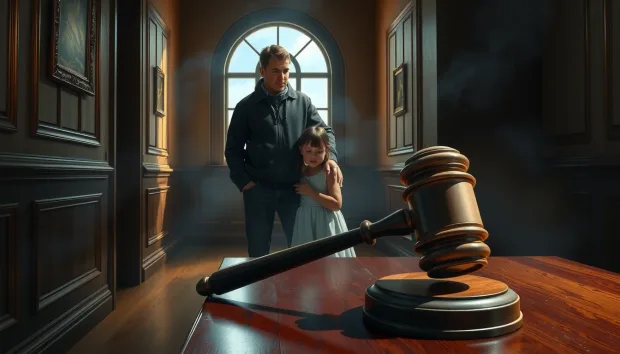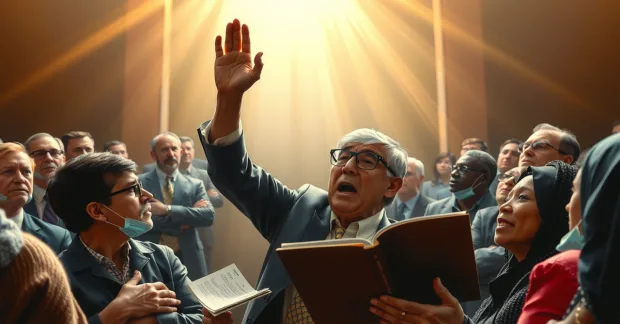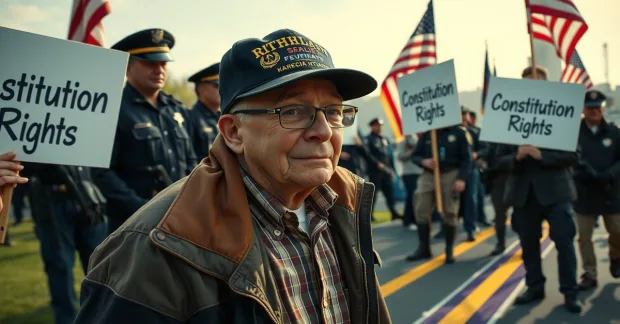
In every functioning republic, freedom of the press stands as a critical pillar that ensures the public’s right to know. This fundamental principle enshrined in the First Amendment of the United States Constitution guarantees that the press remains free from government control and operates independently. Without this vital freedom, societies risk descending into secrecy, manipulation, and oppression. Freedom of the press is not merely a luxury—it is the lifeblood of a transparent, accountable government and a well-informed public.

The importance of freedom of the press lies in its ability to inform, challenge, and empower citizens. It acts as a crucial check on those in power, whether they are politicians, corporations, or other societal institutions. In a world where information is power, the public’s right to know becomes a sacred trust that the press fulfills. Unfortunately, this right is under increasing attack worldwide, as authoritarian governments, corporate interests, and even democratic regimes seek to stifle press freedom and limit media independence.
I. Freedom of the Press: Protecting the Republican form of Government and the Public’s Right to Know
A. The First Amendment: Safeguarding Freedom of the Press
The First Amendment to the U.S. Constitution is a powerful defense against governmental overreach, ensuring that no authority can censor or suppress the press without consequence. This vital protection of press rights is at the heart of what allows journalists to uncover the truth and report it to the public, even in the face of opposition from powerful interests. Without the First Amendment’s guarantee of freedom of the press, many of the world’s most significant stories would never come to light.
At its core, freedom of the press ensures the public’s right to know—the right of citizens to be informed about government actions, corporate behavior, and societal issues. Whether it’s exposing corruption, highlighting social injustices, or simply informing the public about important developments, the press plays a pivotal role in democratic societies.
B. Historical Cases Highlighting Press Freedom’s Importance
Historically, the freedom of the press has been instrumental in shaping public opinion and holding leaders accountable. For instance, the Pentagon Papers, released by whistleblower Daniel Ellsberg in the early 1970s, revealed shocking details about the United States’ involvement in Vietnam, forcing the government to confront its role in the conflict. This case illustrated not only the importance of press freedom but also the lengths to which governments may go to keep information secret from the public.
Similarly, the Watergate scandal is another landmark example of how journalistic freedom has served the republic form of government. Without the free press, the American people would have been left in the dark about President Richard Nixon’s involvement in the scandal that ultimately led to his resignation. These examples underscore why a free press is essential to ensure government transparency and hold power accountable.
II. Press Freedom Under Attack: Global and Domestic Threats
A. Press Freedom Violations Across the Globe
Around the world, the freedom of the press is under constant attack. Authoritarian regimes in countries like Russia, China, and Saudi Arabia have stifled journalists, often resorting to press censorship, imprisonment, or even assassination to silence dissent. Press freedom violations in these regions are alarming, as the public’s right to know is systematically undermined by governments more interested in protecting their image than in allowing the free flow of information.
Take, for example, the murder of Jamal Khashoggi, a Saudi journalist who was critical of the Saudi government. His death served as a stark reminder of the dangers journalists face in authoritarian regimes where press freedom is severely restricted. In these regions, media freedom is nonexistent, and journalists operate in constant fear of retribution, making it nearly impossible to hold governments accountable.
B. Press Freedom Violations in Democratic Societies
Even in democratic countries like the United States, press freedom is not immune to attack. In recent years, journalists have faced increasing hostility from political leaders who brand the media as “the enemy of the people.” This rhetoric, coupled with legal challenges and the proliferation of fake news, threatens the integrity of the press. Efforts to pass laws that limit freedom of the press under the guise of national security have also raised concerns. How far can governments go in suppressing the press before it becomes an outright attack on the public’s right to know?
The rise of digital media freedom has also introduced new challenges. In an era where social media platforms dominate the dissemination of information, the line between free speech and press censorship has become increasingly blurred. Governments and private companies wield enormous power over the flow of information online, making it all too easy to stifle dissent or manipulate public perception.

III. The Public’s Right to Know: Why It’s Under Attack
A. The Erosion of Media Independence and Press Liberty
One of the most insidious ways in which the public’s right to know is undermined is through the erosion of media independence. While physical attacks on journalists make headlines, the slow and steady co-opting of the press by corporate interests often goes unnoticed. When media outlets are owned by a small handful of corporations, media transparency suffers, and the ability of the press to report objectively is severely compromised.
Corporate interests can influence what stories are told, how they are framed, and which issues are ignored altogether. This type of press censorship is more subtle than outright repression, but it is just as dangerous. When the public is deprived of objective, fact-based reporting, their ability to hold power accountable is diminished. The freedom of the press is a fragile right, one that must be protected from both overt and covert threats.
B. Censorship and the Control of Information
Press censorship often manifests in less overt but equally damaging forms, such as strategic omissions and misinformation. By controlling what the public sees and hears, governments can manipulate the narrative to suit their interests. For instance, freedom of the press in countries like Turkey has been systematically dismantled by censorship laws that target media outlets critical of the government.
In the United States, freedom of the press faces the challenge of balancing national security with the public’s right to know. Whistleblowers who expose government misconduct, such as Edward Snowden, have highlighted the tension between transparency and secrecy. In such cases, the press plays a vital role in ensuring that the public’s right to know is not overridden by claims of national security.
IV. Investigative Journalism: Exposing Corruption and Ensuring Accountability
A. Investigative Journalism: The Last Line of Defense
In a world where press freedom is increasingly under attack, investigative journalism remains the last line of defense. Investigative journalists uncover stories that would otherwise remain hidden from public view, exposing corruption, human rights abuses, and government malfeasance. They ensure that the public’s right to know is fulfilled by shedding light on the darkest corners of power.
For example, the work of investigative journalists who exposed widespread corruption in governments worldwide has brought about significant societal change. Without a free press, these stories would have never been told, and the perpetrators of corruption would continue their actions without consequence.
B. Whistleblowers and Press Freedom: A Symbiotic Relationship
Whistleblowers play a critical role in press freedom, often serving as the primary source of information for investigative journalism. The courage it takes for whistleblowers to expose corruption is immense, and their protection is essential for press freedom to thrive. Whistleblower protections ensure that individuals can safely report wrongdoing without fear of retaliation, thereby reinforcing the public’s right to know.
Without the ability to protect their sources, journalists cannot do their jobs effectively. This is why whistleblower protection laws are a critical component of press freedom. Cases like Edward Snowden and Chelsea Manning illustrate the delicate balance between freedom of the press and the state’s interest in maintaining national security. However, when whistleblowers expose illegal or unethical government activities, they often face legal retribution. It is in these moments that press freedom and whistleblower protection intersect to safeguard the public’s right to know.
V. Press Freedom in the Digital Age: Opportunities and Risks
A. The Digital Media Landscape: A Double-Edged Sword
In today’s digital era, the role of freedom of the press has expanded beyond traditional print and television media. Digital media freedom offers both new opportunities and new challenges. On one hand, digital platforms have democratized access to information, enabling independent journalists and citizen reporters to share their stories directly with the public. On the other hand, the rise of fake news, misinformation, and press censorship in the digital space has created significant obstacles to ensuring the public’s right to know.
The rapid spread of fake news and propaganda through social media has caused widespread mistrust of the press, undermining the integrity of journalists worldwide. As algorithms prioritize sensationalism and clickbait over verified facts, the quality of information available to the public is compromised. This highlights the critical need for media transparency and press freedom in the digital age.
B. Social Media: A Platform for Freedom or Censorship?
Social media platforms have become a battleground for press freedom and censorship. While these platforms offer unprecedented opportunities for journalists to reach broader audiences, they also serve as tools for governments to control and censor information. In countries like China, the government uses social media to monitor and suppress dissent, while in democratic nations, platforms have come under
scrutiny for spreading misinformation and limiting the reach of independent media outlets.
The battle between press freedom and press censorship on social media underscores the need for regulation that protects free speech while preventing the spread of harmful misinformation. Striking the right balance between these competing interests is one of the biggest challenges facing freedom of the press in the 21st century.
VI. The Future of Freedom of the Press: Defending the Republic
A. The Cost of Losing Press Freedom
The loss of freedom of the press would have devastating consequences for the republican form of government. Without a free press, there is no one to hold governments accountable, to expose corruption, or to inform the public about critical issues. The erosion of press freedom represents a direct attack on the public’s right to know, undermining the very foundation of democratic society.
When the press is silenced, the public loses its most reliable source of information. Without the ability to report freely, journalists cannot fulfill their role as watchdogs of power, leaving governments, corporations, and other institutions unchecked. The result is a society where misinformation thrives, corruption goes unnoticed, and the truth becomes a rare commodity.
B. Defending the Public’s Right to Know
Now more than ever, the fight to protect press freedom is essential. As governments and corporations seek to control the flow of information, the public’s right to know must be fiercely defended. This requires not only legal protections for journalists but also a commitment from the public to support independent media and hold power accountable.
Citizens can play a critical role in advocating for press freedom by supporting journalists, demanding transparency from their governments, and fighting against efforts to suppress the free flow of information. Ultimately, the defense of freedom of the press is a defense of the republic itself.
Conclusion: A Call to Action
The importance of freedom of the press cannot be overstated. It is the foundation upon which all other democratic rights rest. Without it, the public’s right to know is lost, and with it, the ability to hold power accountable. As threats to press freedom continue to rise both globally and domestically, the fight to protect this essential right is more urgent than ever. In the face of these challenges, we must stand firm in our defense of a free press, for without it, the Republic cannot survive.




















